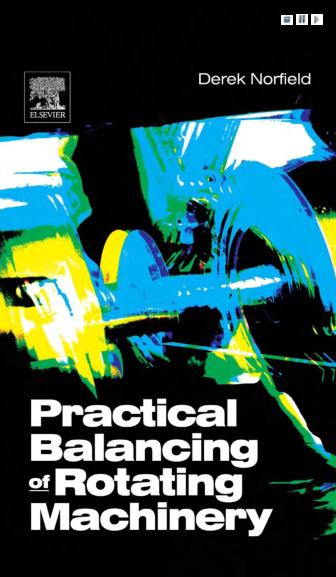Rotating machinery (eg pumps, motors, compressors) is normally manufactured to precise measurements but there comes a point when the costs of manufacture mean that further precision is not cost-effective and thus any slight imbalance inherent in the machine will need to be attended to after manufacture. When such machinery is in operation, often at very high speeds of thousands of revs per minute, any imbalance will set up vibration and often noise. In addition, such imbalance will cause extra wear and loss of efficiency in the machine. The answer is to balance the affected parts of the machine so that it operates smoothly and efficiently.
This book is a practical account of such balancing techniques e.g how to balance a rotor, how to set up and verify performance of a balancing machine, and procedures for on-site balancing. In addition, other common causes of vibration will be covered e.g. misalignment, bad bearings and looseness.
This book is the distillation of a successful course run by the author and developed over 20 years. University engineering departments do not teach balancing techniques beyond the very basic, and there is a need for educators and engineers to have a practical book available on the topic.
· A practical book which will help the reader understand the importance of balance in today’s high technology world
· Outlines the history of dynamic balancing and other vibration reduction techniques
· Profusely illustrated throughout
 کتاب سل Ketab Sell | کتاب سل، بزرگترین منبع کتاب و جزوههای دانشجویی
کتاب سل Ketab Sell | کتاب سل، بزرگترین منبع کتاب و جزوههای دانشجویی








Reviews
There are no reviews yet.